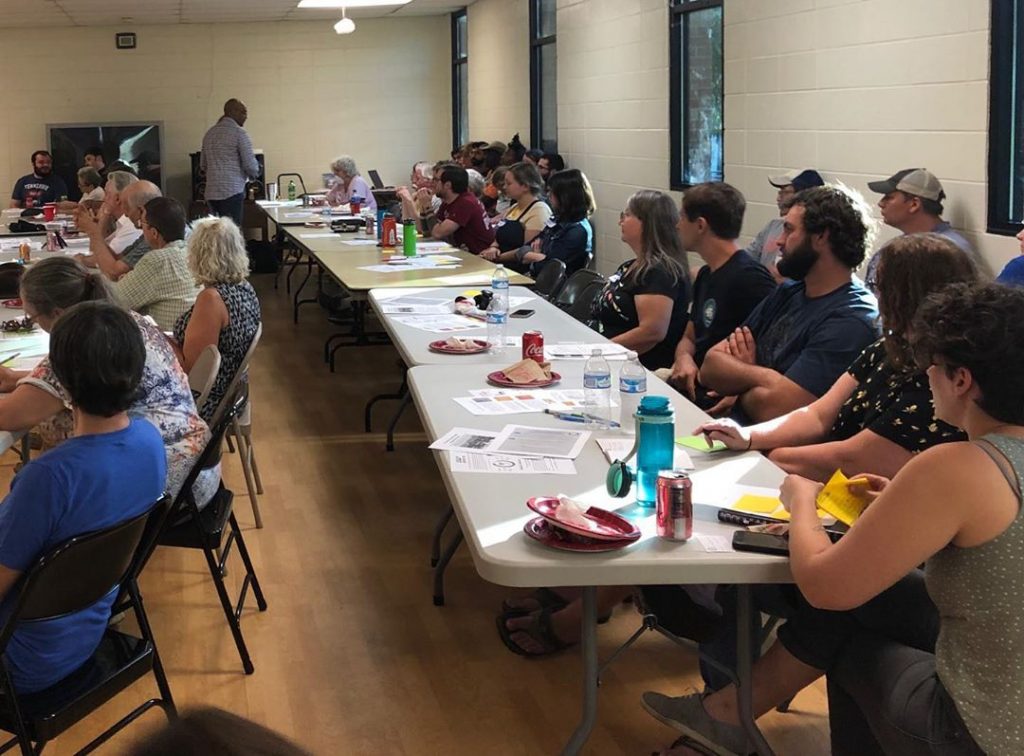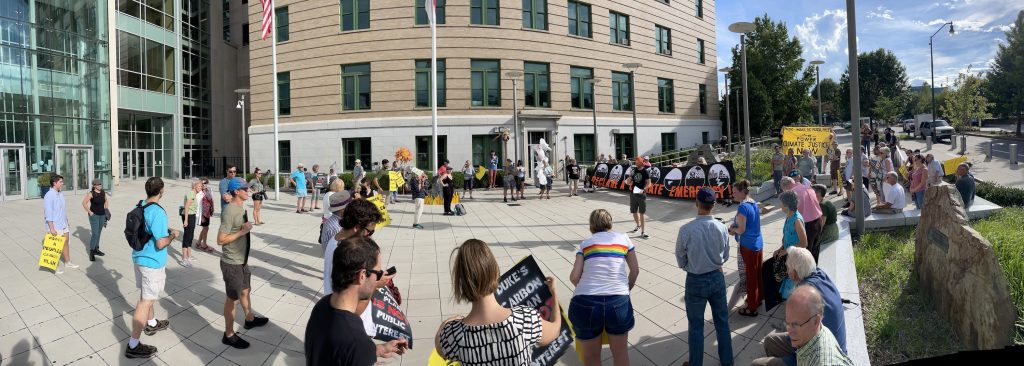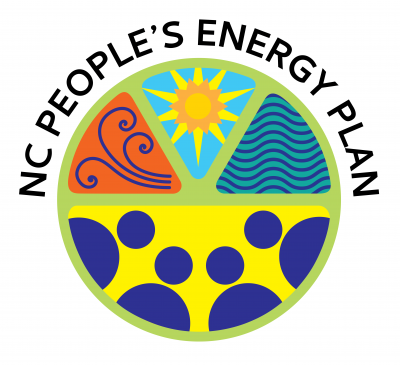
Listening sessions like this one in Tennessee, and the ones planned for North Carolina, help empower people to shape their energy systems. Photo by Appalachian Voices
There has been a lot to unpack regarding North Carolina’s energy system over the last year. In October 2021, we saw a state House bill that set North Carolina on a path toward a 70% reduction of carbon emissions by 2030. There is more to the North Carolina energy system than the state’s Carbon Plan and these reduction goals only apply to Duke Energy and could have stronger protections for families from rising electricity costs and the effects of climate change.
Appalachian Voices, along with many others, is speaking up about the state’s Carbon Plan and the needs of North Carolinians as we transition to a clean energy future. We worked to get people involved in the North Carolina Utilities Commission public hearings about the Carbon Plan. We are intervening in the legal proceedings to ensure that Duke Energy has to respond to our concerns.

Activists with Appalachian Voices, Sunrise Movement AVL, Alliance to Protect the People and the Places We Live and Beyond Extreme Energy attended a rally before the North Carolina Utilities Commissions’ Carbon Plan Hearing on July 27. Photo by Maddy Koch
In regards to the state’s Carbon Plan to meet a 70% reduction goal by 2030, it may take a few more months to fully understand the impacts we have all had on this process, and you definitely can (and should) still make comments with the utilities commission through our partner coalition, People Power NC. However, I also think it’s an important time to start talking about North Carolina’s energy system beyond Duke Energy.
Duke Energy and its subsidiaries do serve a substantial portion of the state, but in North Carolina, we still have 26 electric cooperatives and over 70 municipally-owned energy systems serving millions of people. While some of these companies don’t generate their own power, they make important decisions like where they buy that power and how they treat low-income ratepayers who can’t afford their electric bills.
Ignoring cooperative and municipal electric utilities not only leaves out local renewable energy potential, it also leaves out important opportunities for people to have a say in how to change electricity and North Carolina’s energy system.
So what do I mean when I say change in our energy system?
 For me, change looks like more affordable energy that is cleaner — not just free from carbon dioxide, but from all greenhouse gasses. It means that when I turn on my lights, I know that it’s not at the expense of someone’s health, safety or wellbeing. It means that when I pay my electric bill, it’s not lining the pockets of private investors, but instead supports renewable energy and low-income ratepayers. It means policies that protect people from having their power shut off when they fall on hard times. Change looks like electricity that prioritizes reliability while we’re experiencing rapidly changing conditions from severe weather events.
For me, change looks like more affordable energy that is cleaner — not just free from carbon dioxide, but from all greenhouse gasses. It means that when I turn on my lights, I know that it’s not at the expense of someone’s health, safety or wellbeing. It means that when I pay my electric bill, it’s not lining the pockets of private investors, but instead supports renewable energy and low-income ratepayers. It means policies that protect people from having their power shut off when they fall on hard times. Change looks like electricity that prioritizes reliability while we’re experiencing rapidly changing conditions from severe weather events.
These are just the changes I envision in our energy system, but I also want to know what other people want to see in a changing energy system for all of North Carolina. This will help us develop a statewide People’s Energy Plan that represents North Carolinians’ perspectives on energy.
Please take our survey! This survey will help us envision an energy system that works for everyone while sparking exciting conversation in the process. It will also help Appalachian Voices, and any local partners, in better serving anyone using electricity to enact change at the local and state levels. When you’re done with the survey, you can share it with your friends, neighbors and colleagues across the state!
If you’re interested in helping host a listening session in your area or would like additional support sharing the survey, please reach out to me directly — maddy@appvoices.org or visit our North Carolina Energy Democracy page.



Leave a Reply